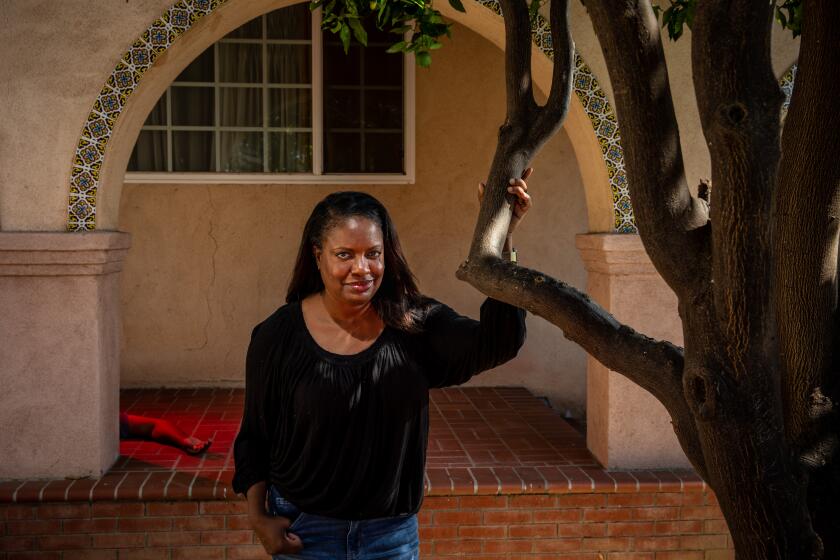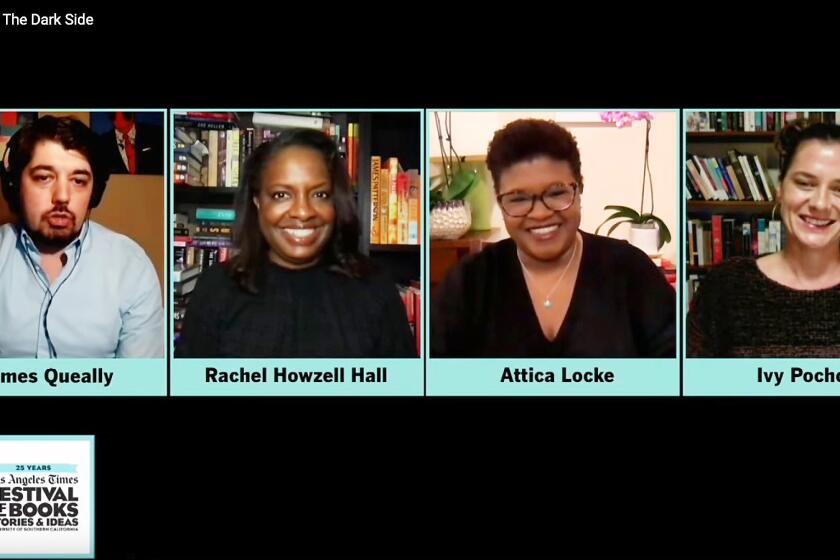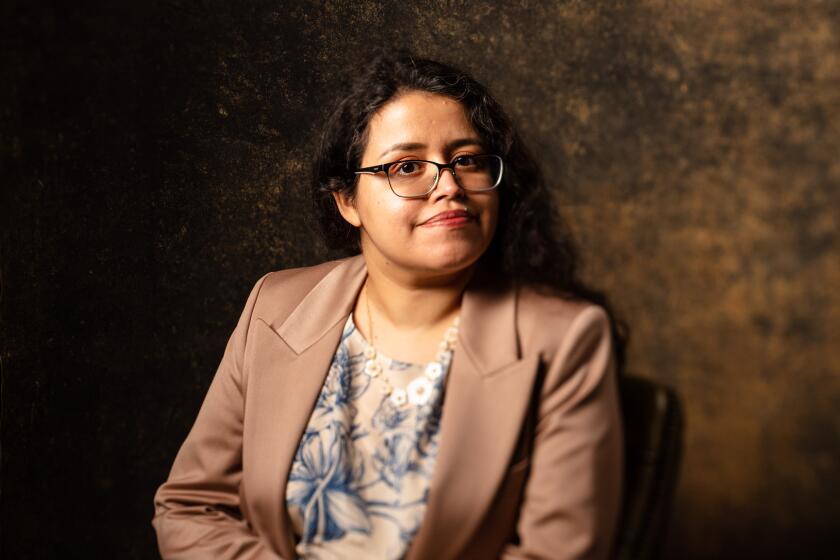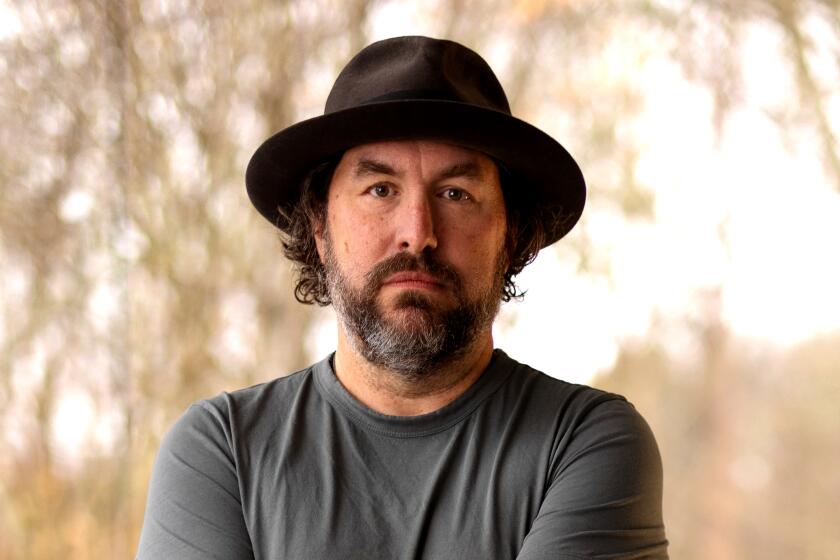Review: Palmdale’s Black middle class gets its close-up in a dishy new thriller
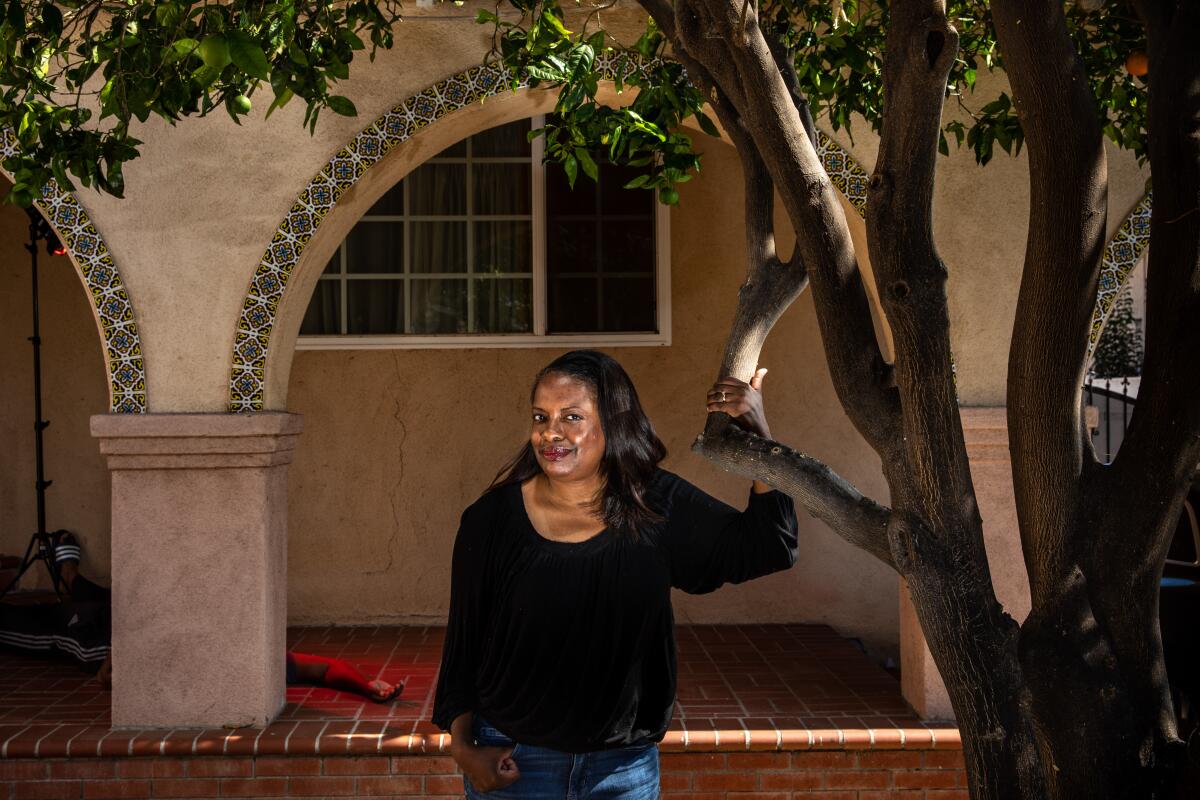
On the Shelf
'We Lie Here'
By Rachel Howzell Hall
Thomas & Mercer: 396 pages, $25
If you buy books linked on our site, The Times may earn a commission from Bookshop.org, whose fees support independent bookstores.
When Yara Gibson, the protagonist of Rachel Howzell Hall’s new thriller, “We Lie Here,” says of her return to Palmdale, “I must be crazy going back,” she means it. The 24-year-old asthmatic escaped the heat, wind and dust of the northern exurb two years ago for an L.A. writers room on hit television crime drama “Tough Cookie.” She also fled an assortment of gang members, “bored little boys” whose girlfriends “clench into balls to take the hits or push out another baby.” Not to mention the bickering and cigarette smoke she endured while living with her family.
Nevertheless there Yara is, braving the elements, environmental and social, to host a weekend party for 75 of her parents’ nearest and dearest in celebration of their 20 years of marriage. And, if she can grab a quiet moment, to work on a series pilot she’s writing — working title: “Queen of Palmdale.” Not so fast: Enter Felicia Campbell, a second cousin on her mother’s side, who sends an ominous text, insisting she has information that will change Yara’s life and closing with a taunt: “Who do you think you are?” Soon the cousin confronts Yara in person, only to be dismissed with a literal “Bye, Felicia.” And before you know it, Felicia turns up dead.
Rachel Howzell Hall’s new novel, “And Now She’s Gone,” breaks the crime-fiction mold; its success proves a long line of publishers wrong.
The inciting incident of Hall’s latest thriller (after The Times Book Prize-shortlisted “And Now She’s Gone” and “These Toxic Things”) feels familiar in its simplicity, like the request from General Sternwood that led Raymond Chandler’s Marlowe to search for a wayward teen in “The Big Sleep,” or the call from a friend that prompted Agatha Christie’s Miss Marple to investigate the titular “Body in the Library.” But in the hands of contemporary writers, such setups open windows onto more complicated, often dysfunctional families, situations that feel compelling even in the absence of a corpse. And in Hall’s work, it opens doors to the kinds of houses you might not have seen in fiction before.
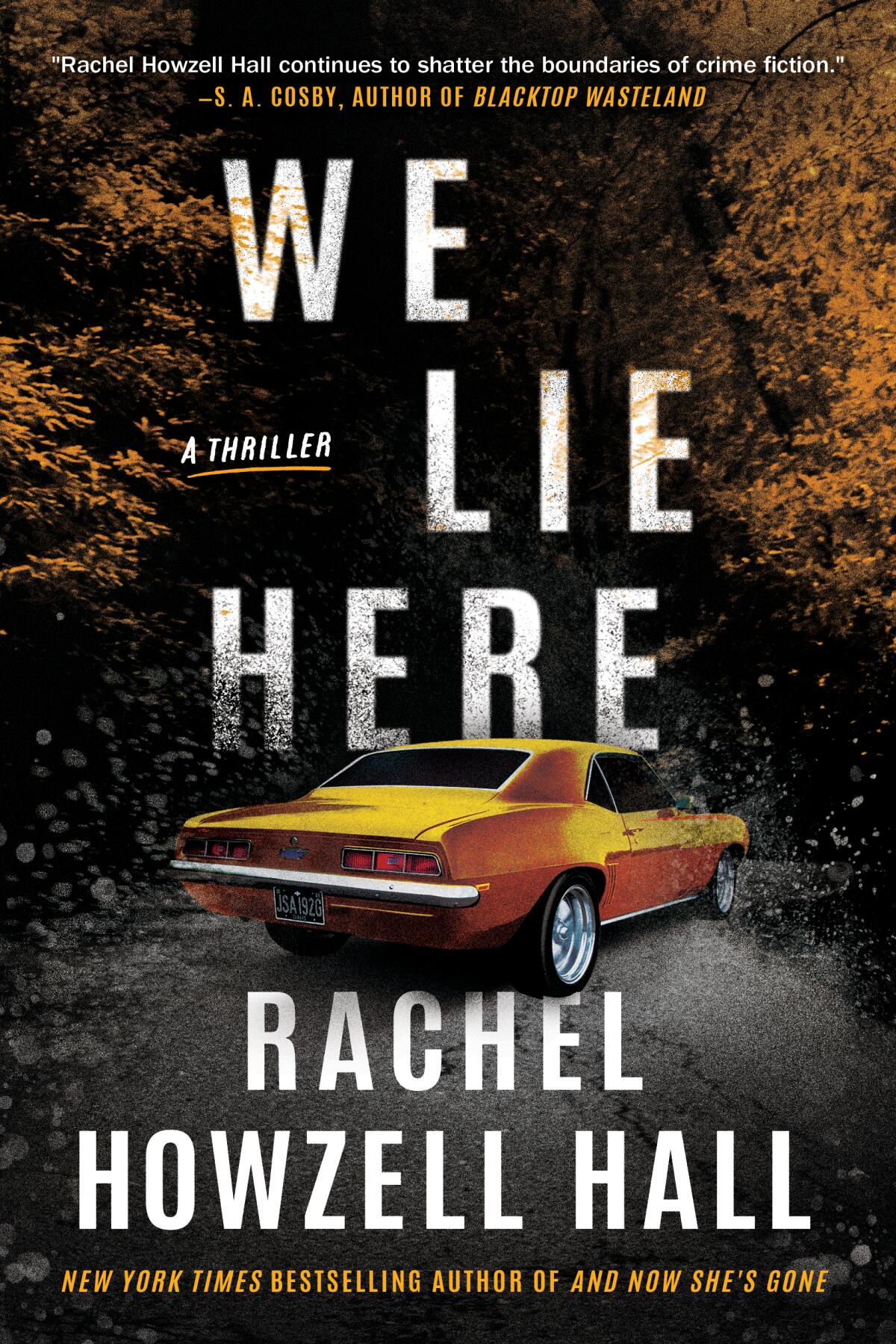
In the center of Hall’s busy hive of relationships here is her mother, Barbara McGuire Gordon — Bee to her friends and family. Most often she’s Queen Bee, resplendent in her pendant featuring a honeybee of diamond, onyx and yellow sapphire, a pot stirrer who has ominously kept a Louis Vuitton “go bag” at the front door for 15 years to remind her family she can leave them in a hot minute. Sometimes she’s Anxious Bee, devoted coach of the high school track team, worrying over a student. Or Best Friend Bee to her longtime running buddies and even, occasionally, to Yara. Or Bad Bee, guilting Yara into paying for her little sister’s education or carrying on smoking despite Yara’s asthma. Queen Bee McG’s other subjects are her long-suffering husband, Robert, and Yara’s younger sister, Dominique, whose flirtation with one of Palmdale’s lesser gang members brings its own dangers.
While the tense family dynamics and hovering threats may feel reminiscent of Gillian Flynn’s “Sharp Objects” or almost anything by Lisa Unger, Hall goes those writers one better by putting a spin on “We Lie Here” worthy of Terry McMillan. In this Black middle-class milieu, Yara’s success in Hollywood sparks pride and a certain amount of sharp-tongued jealousy among her family, as well as the gangbangers and wannabes she left behind.
Writers Rachel Howzell Hall, Attica Locke and Ivy Pochoda talked with Times reporter James Queally for a 2020 Los Angeles Times Festival of Books event.
Hall balances the Gibson family psychodrama with portraits of Yara’s childhood friends. Would-be crush Cayden Decker, a white cross-country runner once coached by Yara’s mom, now manages a members-only fishing and hunting club with access to Lake Palmdale, where Campbell’s body was found. Kayla Kozlowski, Yara’s high school bestie, is a deputy sheriff in the LASD’s Palmdale station. Deputy Kozlowski’s investigation into Campbell’s murder shines light into the dark corners of the extended family in ways that make Yara question her memory, her understanding of her family’s history and a lot more.
Hall has long forged a singular path as a crime writer, blending an increasingly assured mastery of the genre with an abiding interest in lives too often relegated to the margins. Watching her peel back the layers of Palmdale to expose its diverse residents and problems feels particularly gratifying and makes “We Lie Here” a fresh addition to a more inclusive list of essential L.A. crime fiction. This stellar entry makes one eager to learn not only what comes next for Hall but also how Yara the writer might use grist from the Palmdale mill in that series pilot percolating in the back of her mind. Hall has been writing stand-alones ever since putting down her Elouise Norton series; maybe it’s time she wrote another sequel.
Woods is a book critic, an editor and the author of the Charlotte Justice mysteries.
The Mexican-Canadian author of bestsellers ‘Mexican Gothic’ and ‘Velvet Was the Night’ was born and raised to be a genre-hopping, storytelling dynamo.
More to Read
Sign up for our Book Club newsletter
Get the latest news, events and more from the Los Angeles Times Book Club, and help us get L.A. reading and talking.
You may occasionally receive promotional content from the Los Angeles Times.
